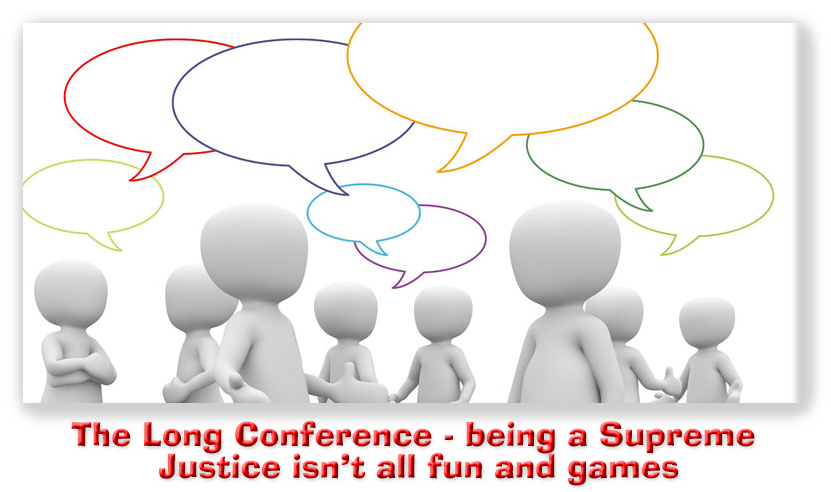We post news and comment on federal criminal justice issues, focused primarily on trial and post-conviction matters, legislative initiatives, and sentencing issues.

ACQUITTED CONDUCT STILL HANGING FIRE
Three weeks ago, I wrote that the Supreme Court would be deciding whether to finally take the question of whether a district court should be able to factor conduct for which a defendant was acquitted into a sentence, sort of “the jury didn’t think you did it, but I know better” approach to sentencing.
 It turns out that SCOTUS now has five petitions for review before it raising the acquitted conduct issue. The principal case, McClinton v. United States, was “relisted” at the Justices’ Friday, January 6, 2023, conference for the following week’s Friday conference. On January 13, the Justices relisted the issue again for the January 20, 2023, conference. The Court will announce actions taken at the January 20th conference this morning at 9:30 Eastern time.
It turns out that SCOTUS now has five petitions for review before it raising the acquitted conduct issue. The principal case, McClinton v. United States, was “relisted” at the Justices’ Friday, January 6, 2023, conference for the following week’s Friday conference. On January 13, the Justices relisted the issue again for the January 20, 2023, conference. The Court will announce actions taken at the January 20th conference this morning at 9:30 Eastern time.
A “relist” occurs when the justices neither accept nor deny a petition for certiorari, but instead defer it for the next conference.
SCOTUSBlog explains that
it is almost impossible to know exactly what is happening when a particular case is relisted… One justice could be trying to pick up a fourth vote to grant review, one or more justices may want to look more closely at the case, a justice could be writing an opinion about the court’s decision to deny review, or the court could be writing an opinion to summarily reverse… the decision below.
Generally, the Supreme Court does not accept a case for review until it has been “relisted” one or more times.
Writing in his Sentencing Law and Policy blog, Ohio State University law professor Doug Berman said last week, “More often than not, relisting is a precursor to a later denial of cert, perhaps with a dissent or separate statement being authored by one or more Justices giving their take on the Court’s decision not to grant review. But relisting is also sometimes a precursor to a later granting of cert. So, as I have said before, I am hopeful, though still more than a bit pessimistic, about the possibility of 2023 being the year for SCOTUS to take up acquitted conduct sentencing.”
SCOTUSBlog, Acquitted-conduct sentencing and “offended observer” standing (January 19, 2023)
McClinton v. United States, Case No. 21-1557 (petition for certiorari pending)
Sentencing Law and Policy, US Supreme Court relists latest cases seeking review of acquitted conduct sentencing (January 17, 2023)
– Thomas L. Root





